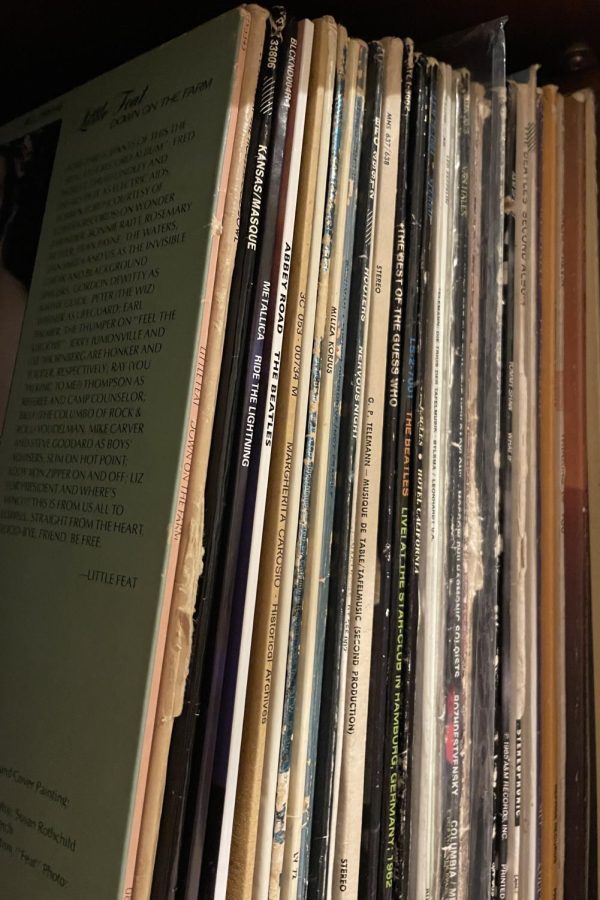Old music greatly impacts genres today
Nothing beats vinyl for music lovers.
November 16, 2022
Music is a unifying force that has brought people together for centuries. Many of the first styles of music were of different cultures, brought to the U.S. by people from places in Europe, Africa, and Asia.
During the 1950s and 1960s, a very notable shift in music occurred, when icons such as Elvis Presley entertained crowds with classic rock-n-roll, blues, and folk songs. Previous popular styles such as classical and jazz continued to develop but at a slower pace. The songs produced during this time had individuality and the artists were able to express themselves with their music. The unique and poetic lyrics captured the moment and allowed even more song progression to occur.
“’60s was the decade with the biggest change in music,” said Barry Stinson, who obtained a master’s degree in music at Louisiana State University. “The beginning of the decade started with rather simple popular music, and by the end of the decade, music had gotten much more complex. An example of this would be the Beatles, their early music was simple three-chord pop music, and by the end of the decade many pieces were Avant-garde.”
The Beatles prominently led a music revolution and gained popularity all around the world since their debut in 1960. The Beatles have a reputation today for having “grandpa music,” although, during their peak, they were considered new and different especially as their music changed to a more psychedelic scene in the late 60s.
“For example, compare ‘I Want to Hold Your Hand’ to ‘Revolution No 9,’ ” said Stinson. “While The Beatles are the most obvious example, this same progression happened more or less across the entire popular music scene.”
Since this breakthrough, music has continued to evolve at a rapid pace, with new genres being introduced every decade along with new artists emerging who have all been influential to today’s music.
Along with the development of styles of music came new ways to enjoy music, some popular examples are music festivals which were popularized in the 70s by conventions such as Woodstock and Isle of Wight, where many artists gained recognition. Listening on handheld devices has been the easiest and most well-known method since the introduction of the Walkman, now replaced by a cellphone.
Music continued to steadily evolve throughout the next decades until the 2010s when it started being impacted by social media. Introducing these platforms into the music world has allowed artists to gain exposure, but can also lead to songs sounding similar and repetitive.
Although many people have different preferences for music, it is important to realize that without the fundamental years of music evolution, the genres popular today would not exist. To many, music has remained a very important theme in everyday life.






